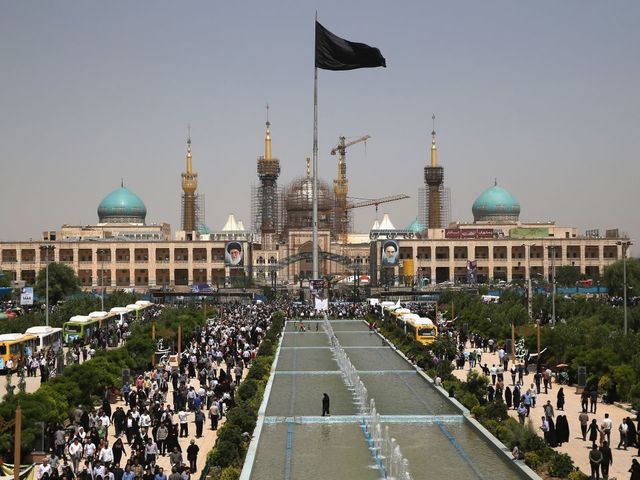-
Tips for becoming a good boxer - November 6, 2020
-
7 expert tips for making your hens night a memorable one - November 6, 2020
-
5 reasons to host your Christmas party on a cruise boat - November 6, 2020
-
What to do when you’re charged with a crime - November 6, 2020
-
Should you get one or multiple dogs? Here’s all you need to know - November 3, 2020
-
A Guide: How to Build Your Very Own Magic Mirror - February 14, 2019
-
Our Top Inspirational Baseball Stars - November 24, 2018
-
Five Tech Tools That Will Help You Turn Your Blog into a Business - November 24, 2018
-
How to Indulge on Vacation without Expanding Your Waist - November 9, 2018
-
5 Strategies for Businesses to Appeal to Today’s Increasingly Mobile-Crazed Customers - November 9, 2018
Britain raised human rights concerns with Saudi Arabia -minister
The British government has previously come under pressure over human rights issues in Saudi Arabia, considered one of its closest military allies in the Middle East. Cameron’s spokeswoman said on Monday that Britain opposed the death penalty under any circumstances.
Advertisement
The protests occurred following the execution of prominent Shia cleric Nimr al-Nimr in Riyadh on Saturday.
On the other hand, two contrasting opinions can be heard emanating from Iran: Rouhani’s government is trying to control the diplomatic tension and has publicly denounced the attack on the Saudi embassy, but hardliners have been trying to use this crisis to undermine the perceived success of the moderate Rouhani’s completion of the global nuclear deal. Late Sunday, Saudi Arabia announced it was severing relations with Iran because of the assaults, giving Iranian diplomatic personnel 48 hours to leave.
According to a purported cable released by WikiLeaks, a State Department official met with Nimr in 2008 in his hometown of Awamiyya, where Nimr said he was “against the idea that Saudi Shi’a should expect Iranian support based on some idea of sectarian unity that supersedes national politics”.
The statement by the 15-member council made no mention of the execution of Sheikh Nimr al-Nimr and called on Iran to protect diplomatic personnel and property.
In Istanbul, people gathered outside Saudi Arabia’s consulate holding posters of al-Nimr, and shouted “Saudi Arabia will pay the price”.
On Tuesday, for instance, Kuwait, whose ruling family and most of its citizens are Sunni, recalled its ambassador to Tehran, citing “torching and sabotage activities” of Iranian demonstrators.
“We are not natural-born enemies of Iran”.
“But again, I would just go back to the main point here that Saudi Arabia is a key partner in the region, a key leader”.
The kingdom responded by severing ties with Iran. “Your White House colleague [press secretary Josh Earnest] was asked pretty much the same thing, and he replied, ‘We certainly would condemn any country that carries out mass executions.’ Does that mean that you’re condemning the Saudis for doing this?”
The latest crisis between regional rivals Iran and Saudi Arabia deepened Tuesday, four days after it erupted with the execution of Shiite cleric Sheikh Nimr al-Nimr. Iran, for its part, expressed “regret” after the attacks on Saudi posts.
YEMEN – The Arab world’s poorest country is torn by a civil war pitting its internationally recognized government, backed by a Saudi-led coalition, against Shiite rebels known as Houthis, who are supported by Iran.
Other countries have done the same, with Turkey urging both sides to “abandon… the language of threats and a return to the language of diplomacy”.
Jack Gerard, president of the American Petroleum Institute, said that lifting the ban on exports of US crude has changed the geopolitics of energy.
UNITED KINGDOM – Britain and Iran reopened their respective embassies in 2015, four years after hard-line protesters stormed the British embassy in Tehran. “But they’ve stopped short of direct conflict and eventually agreed to a cold reconciliation”, said Karim Sadjadpour, senior associate of the Carnegie Endowment for International Peace’s Middle East program.
The UN envoy for Syria headed to Riyadh and Tehran to defuse tensions, and a USA official said Washington was “urging calm and de-escalation”.
Advertisement
The cleric was an outspoken critic of the Saudi government, calling for more rights for the country’s marginalized Shiite community.




























